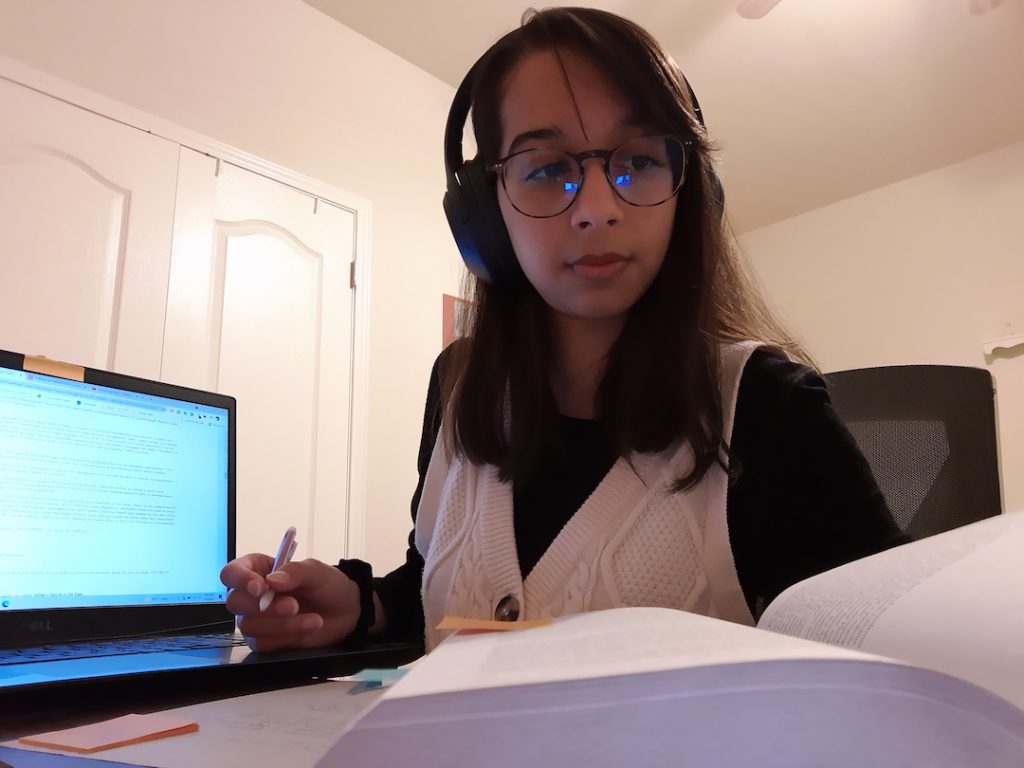Video by Nathan Lu
Story by Pete Ramirez
The prominent role the internet plays in our world has highlighted an issue we’ve been dealing with since the creation of the internet: cybersecurity.
Every few months there is a new headline in the news about a prominent company or government organization that has been hacked such as the large-scale Solarwinds breach or the massive Twitch data dump.
Understanding that our ever-connected lives won’t be unplugging from the internet anytime soon, a few Austin Community College students and faculty are doing what they can to educate those around them about the many threats that are lurking online.
“More of our learning has moved onto the internet,” Austin Community College student and Phi Theta Kappa honors society officer, Arden Silva said. “Children are being exposed to the internet at a much younger age.”
Alya Mansoor, another ACC student and PTK officer, said that she works with young kids and has often witnessed them unknowingly download malware and ruin whatever technology they are using.
“A lot of what I see is kids being impacted and easily influenced by the technology, entertainment, and media out there,” Mansoor said.
In order to educate people about the dangers of the web and promote healthy cybersecurity habits, PTK’s Honors in Action committee created a convenient, accessible website that contains eye-catching PDFs filled with tips and guides to keep you safe online.
“I hope that we can at least bring some awareness to these kids and help them in navigating their own lives through the technology that is available to them.”
Alya Mansoor, Austin Community College student and Phi Theta Kappa officer
“We researched in the spring and we found out that kids are being taught cyber security in school but that is not really being enforced at home,” ACC student and PTK officer Isabella Santos said.
The PTK members believe their new website will be a reinforcement tool that parents can utilize to help their families stay protected in the ever-expanding digital world.
“I hope that we can at least bring some awareness to these kids and help them in navigating their own lives through the technology that is available to them,” Mansoor said.
All of the recommendations that are found on PTK’s cybersecurity website are not only for children. Adolescents and adults can benefit from adopting the practices as well.
An ACC faculty member that is doing his part to spread the gospel of safe online practices to all ages is Dr. Michael MacLeod.
MacLeod is a professor working in the computer science department who has a background in cybersecurity.
“I was in information technology for 35 years,” MacLeod said. “I built the fourth-largest state-owned network in the state of Texas.”
Having seen how digital threats have evolved and increased frequency over the years, MacLeod said that most people don’t understand that we’ve been in serious cyber warfare since the early 2000s.
“Every day [hackers] get better,” MacLeod said. “So every day, our people have to get better.”
For those that are interested in entering the world of cybersecurity, MacLeod encourages learning as much as you can and exposing yourself to groups that work in this field.
When it comes to the average internet user who may not know the ins and outs of cyber security, MacLeod recommends purchasing a full suite internet security tool like Kaspersky, Norton, or Bitdefender to protect your devices.
“You’ve got to have something in place to protect yourself,” MacLeod said.
The ACC professor also said that everyone should use caution with the apps that are downloaded onto their devices.
“Every one of those free software apps tracks every single thing you do,” MacLeod said.
Improving cybersecurity habits may seem overwhelming but there are many trusted tools and resources available to the average consumer to use to defend themselves from threats on the web.
“It’s so easy to get caught up in the quickness of the internet but investing in cybersecurity knowledge and skills is beneficial not only to you but others around you,” Mansoor said.





